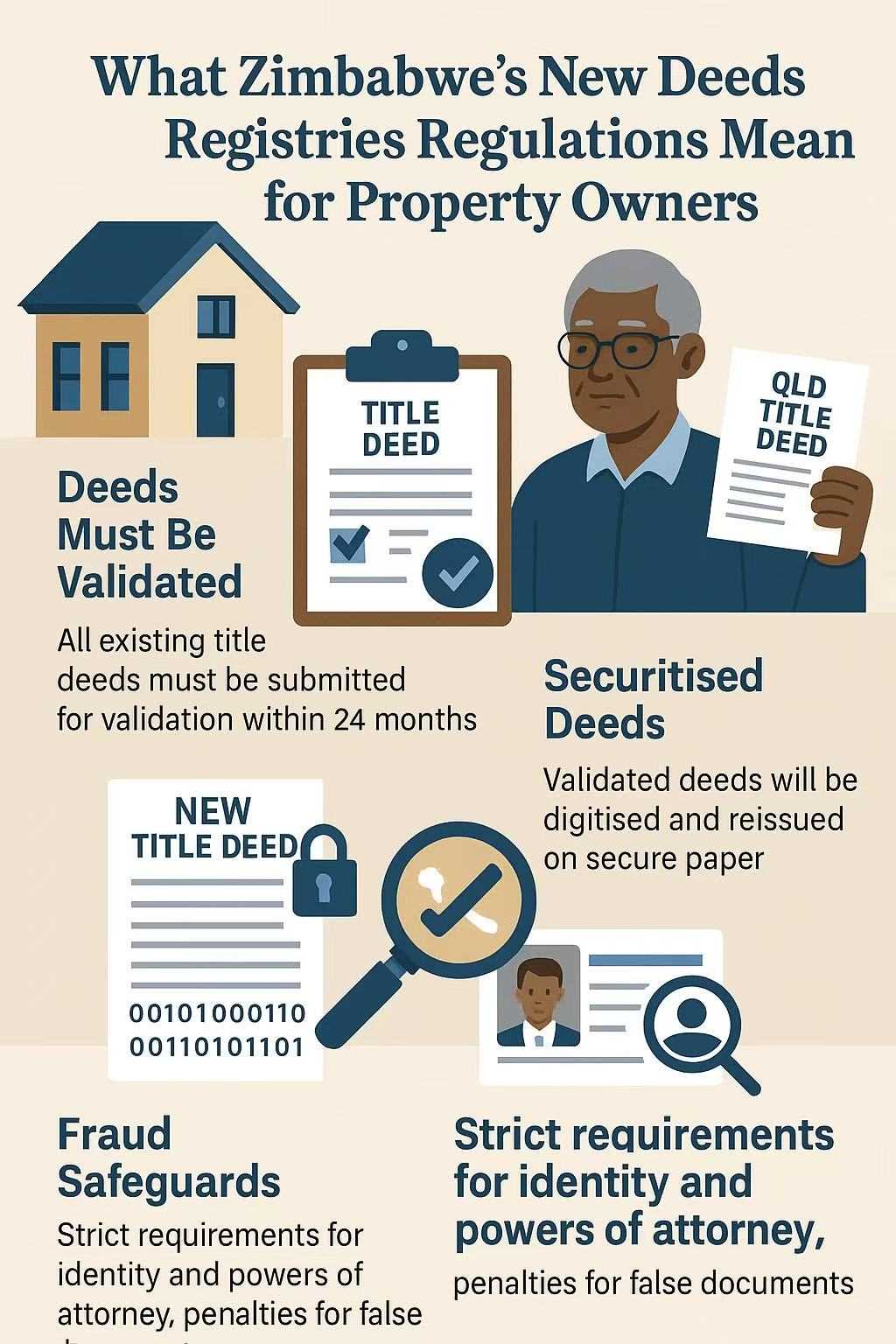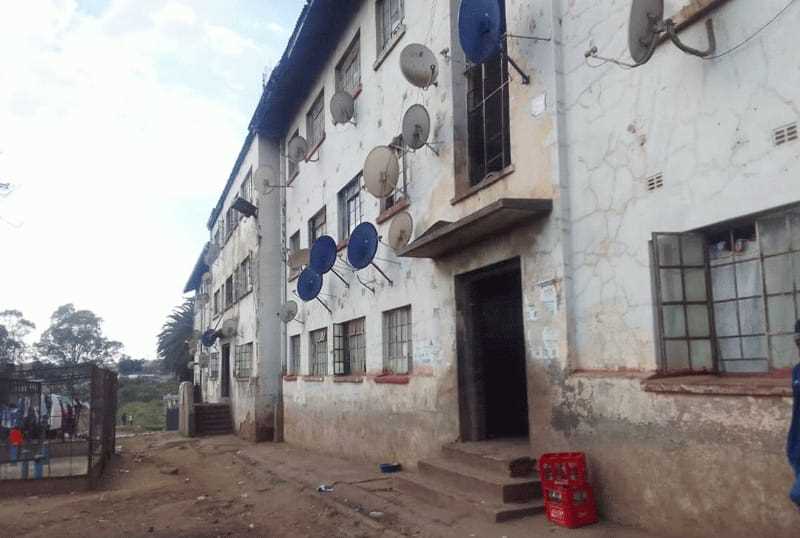Key points for stakeholders
Property Owners: Deeds must be submitted within 24 months of SI publication—or they may lose legal validity.
Lawyers & Conveyancers: Must follow strict notarial and ID procedures when drafting deeds or POAs.
Deeds Office & Ministry Staff: New audit and criminal liability regimes curb collusion and insider fraud.
Civil Society & Media: Greater transparency enables tracking of suspicious transactions previously hidden in paper archives.
Judiciary or property adjudicators: The electronic logs and secure formats reduce avenues for manipulation or undue influence.

ZimNow Reporter
The newly issued S.I. 76 of 2025 is structured to end the era of Zimbabwe’s Deeds Office-level fraud—involving staffers, legal firms, government officials, and at times the judiciary in fraudulently manipulating title deeds.
Some cases that pushed reform
Many property owners have had to fight expensive battles to reclaim their properties after fraudulent transfer of ownership at the Deeds Office. Victims include deceased estate beneficiaries, with minors often targeted by ruthless relatives.
These are some of the high-profile cases that illustrate the rot:
• The Mutumbuka House Scam (2024)
A Deeds Office clerk allegedly handed Dr. Dzingai Mutumbuka’s title deed to a fraudster, who then forged it and sold the Chisipite home for under US$50,000 despite advertising it for US$600,000. This insider involvement captured media attention and public outrage.
• The Trabablas Interchange Property Fraud (2024):
Ernest Shenje, a Ministry of Transport official, was arrested by ZACC for orchestrating a fake compensation claim worth over US$1 million linked to a property falsely registered in the name of a phantom purchaser, Levy Idana. Initial payments of US$200,000 were made before the fraud was uncovered. Lawyers and other ministry staff were allegedly involved in the scheme.
Related Stories
• Lawyers Implicated
Multiple reports suggested that high-profile legal practitioners were implicated in schemes involving fraudulent title transfers and forged documents affecting compensation and ownership. The scandals have eroded trust in the profession and fueled demands for stricter oversight.
One of the most prominent legal scandals linked to fraudulent title transfers involved a clerk from Tendai Biti Law Chambers, who was charged with using a forged Special Power of Attorney to facilitate the illegal transfer of property in Highlands, Harare. The High Court later heard that the purported principal, a UK-based individual, had never signed or authorized the document—claims supported by forensic signature analysis.
Allegations extended further, with businessman Tendai Mashamhanda accusing the firm of submitting false affidavits, fabricating capital gains receipts, and misrepresenting conveyancers to the courts and Deeds Registry.
In a separate but equally egregious scandal, Bherebende Law Chambers, acting on behalf of Believe Guta, who had a previous related conviction, was accused by Zvobgo Attorneys of orchestrating the takeover of a 97-hectare property using a phantom litigant and a cloned company name.
Who else has been scammed? …. As conflict between ...
According to a detailed 2023 letter submitted to the Law Society, Guta allegedly created a company with exactly the same name as the rightful owner (Balwarie Holdings Ltd.), obtained default court judgments dissolving the real company, and used fictitious individuals (e.g., “Alouis Mabhunu”) with no verifiable existence to advance his claim—claims enabled by collusion in the Registrar of Companies, Registrar of Deeds, and judiciary.
Zvobgo’s team specifically accused legal practitioners of representing these non-existent litigants, using fabricated identities and fake corporate entities to seize land.
These cases highlight serious weaknesses in how powers of attorney and supporting documents were previously handled, loopholes that S.I. 76 of 2025 now seeks to close through stricter notarization, identity verification, and criminal penalties for fraudulent submissions.
How S.I. 76 matches up to these failures
| Fraud issue | How S.I. 76 counters it
|
| Insider tampering with deeds | Validation & Securitized Deeds (Secs. 40–41): Old deeds must be submitted and electronically validated; only secured, traceable deeds remain valid. |
| Fraudulent agreements & fake POAs | Tightened power-of-attorney rules (Sec. 27): Require notarisation, valid ID, precise property description, and spousal consent |
| Misuse of fake companies & forged titles | Enhanced identity regulations (Sec. 55): Juristic persons must be fully verified; no aliases or front companies. |
| Collusion within government or registry | Fraud Penalties (Sec. 43): Criminal sanctions target registry or ministry employees who assist fraud |
| Hidden paper files & document manipulation | Digitization + Deletion of old records (Secs. 42, 65): All data migrates online; paper files can be disposed of only after validation. |
| Lack of audit or transparency | Digital logs & electronic access (Secs. 63–66): All dealings must be logged; users—including lawyers and officials—retain identifiable digital footprints.
|
Far from being a routine update, S.I. 76 of 2025 is a direct institutional response to rampant corruption and fraud within the Deeds Office. It fuses digital validation, identity verification, and criminal accountability to build a robust, modern land registry.



















Leave Comments